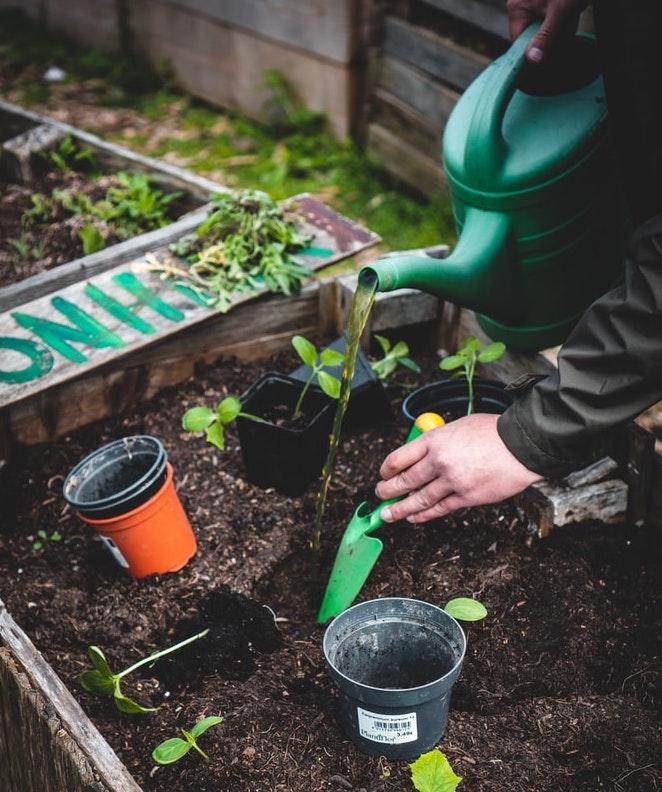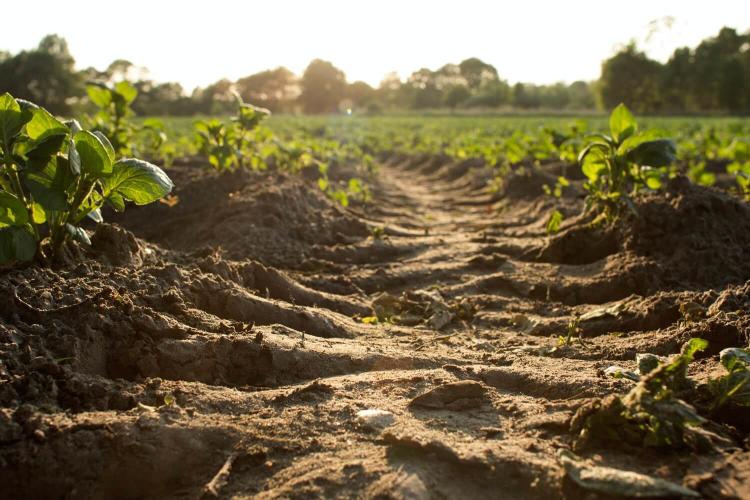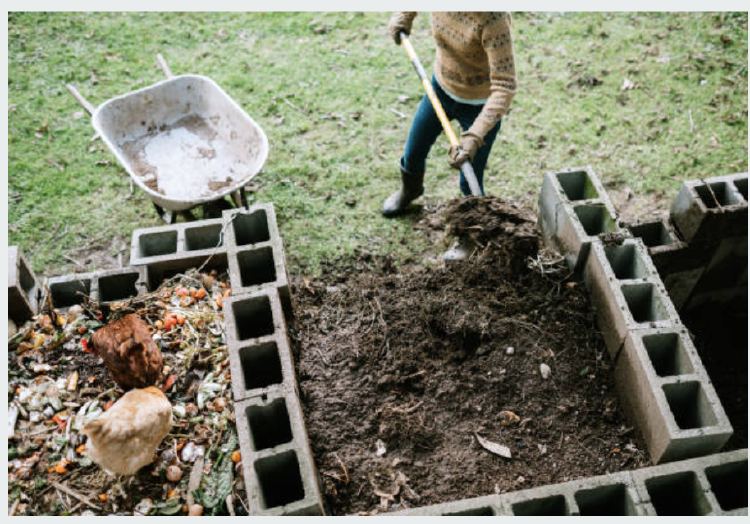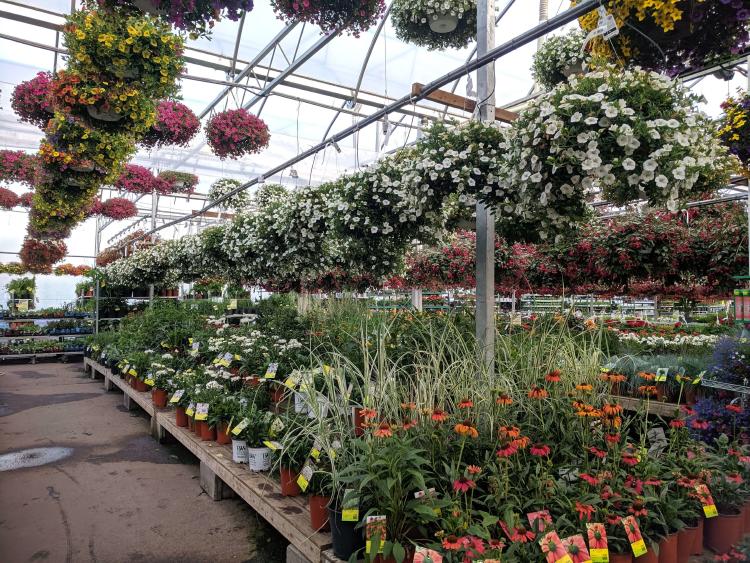
Have you ever heard about liquid compost? It's called leachate compost, learn about its benefits. Now that you have reduced your waste by composting, it is time to reach the next level. Leachate compost is the liquid that drains from your compost bin or your worm bin. That liquid can be absorbed directly by the soil under the compost bin or the soil around it. The other option is to collect it and use it as a natural fertilizer. Don´t you know what to do with it? Read the article to find out more.
Leachate compost comprises chemicals and inorganic particulates. The most important thing is that it has nutrients that benefit the growth of plants. Examples of nutrients are potassium and nitrogen. The amount of nutrients found in the leachate depends on the source of material waste used in the composting process. Knowing the materials that took part of the compost process, will lead you to discover if leachate can be used on your soil and plants. Revise the compost process at How to use Compost? A complete guide to take advantage of compost benefits Liquid compost may include parasites and microorganisms from the food scraps within the compost bin. Nobody would like to contaminate their crops, right?
Compost tea tends to be confused with the term “leachate compost”. However, they are very different things. Compost tea is the process in which waste is transformed into liquid. In opposition to leachate, compost tea contains many nutrients but few humid compounds. The benefits of compost tea are that it increases the presence of microbes in soil and it is absorbed faster than compost.
Learn how to make compost tea at Compost Tea Recipe: How To Brew Your Own Compost Tea.

As discussed above, leachate compost is the resulting liquid from the composting process. This liquid contains essential nutrients that can be used to nurture plants, soil and edibles. Some examples of those nutrients are phosphorus, carbon, nitrogen, potassium, etc. Later in the article you will see how to use this leachate appropriately, because it can carry phytotoxic substances like ammonia. Knowing those tips will save you from disgust.
When you are composting, water is one of the essential elements to succeed. Compost must have moisture because if not, the process will be tremendously slow. While waste is being decomposed, it releases liquid that drains towards the bottom of the compost bin. That water melts humid compounds, and the result is the liquid compost: a dark brown liquid. We recommend that you drain the leachate of your composter two or three times a week, so that it doesn't smell like acid.
TIP: the most beneficial leachate is the initial one, it contains many essential nutrients and concentrations of organic matter.
Take a look to the 3 keys to understanding the Compost Meaning and his universe
Leachate has to be dark brown so that it can be used as a natural fertilizer. If your leachate is yellow, throw it away! Yellow indicates that there is excessive water in your compost and the liquid compost is full of acids. Imagine that putting that leachate into soil and plants will harm them. When you experience that issue, the best recommendation is to add browns to your compost to absorb moisture. Also, it has to be odorless. Acid or putrid odor should not be governing your liquid compost. Another thing to pay attention to: if leachate compost has the right color but has a putrid smell, the waste materials are anaerobic (i.e., there is too much oxygen in the compost bin).

Liquid compost cannot be used directly in your soil or plants. When using leachate compost on edibles, take into account these tips:
As it is mentioned in the first paragraph, leachate can be collected from compost bins or worm bins, known as wormeries. That is because every compost bin produces leachate. In compost bins, the task of collecting leachate may be more difficult. When they don´t carry a collector and leachate is drained into the floor, you can place a container under the tap to collect the liquid. If there isn't a container included in the compost bin, leachate goes into the floor directly. In wormeries, the story is completely different.
Most wormeries sold in the market already have a reservoir with a tap that allows the drainage of liquid compost. In that case collecting leachate is super easy. You just lift the tap of the reservoir and you can obtain leachate to dilute and use on your plants. Apart from that advantage, leachate is easy to collect in worm bins since the liquid goes through decomposed material (because of worms) as opposed to normal compost. Before buying a worm composter, investigate all the available ones in the market and compare their features. Taking the time to choose which fits you best will bring benefits in the near future.
Pathogens may destroy all your years of effort to have a healthy garden. In just a few days, they can infect plants and they may die. This topic is controversial among people, how can you compost and use the leachate compost without killing your garden? Experts suggest controlling the material waste put into the compost bin or worm bin. Don´t put contaminated food neither putrid food. If you discovered that rats and insects were able to access to your compost bin, there is a high probability to have pathogens. Leachate of worm bins can contain harmful pathogens if they weren't digested by worms. Remember that pathogens may be present in your edibles and if human eats them, he may get infected.

Worried or not about esthetics, you should know that leachate is water soluble. Therefore, it can be “cleaned” by natural rain or by a brush. You may be shocked by its color, but I am sure that the benefits of leachate completely overwhelm the esthetics. If you don't have a compost bin with a leachate container or a worm bin, you may encounter little amount of water around the bins. Once the soil absorbs them, they will be gone.
First of all, worm compost tea is made from vermicomposting. While leachate results from compost. Compost tea is an incredible fertilizer for your plants, all nutrients are concentrated in one liquid. How is compost tea created? It is an easy process; you add a certain amount of potable water into worm finished compost. It's like an injection of adrenaline ready to be used in your garden. On the other hand, leachate is the remaining liquid of compost that drains to the bottom of the compost bin. Gardeners say that worm compost tea and leachate provide the same benefits to your soil. However, there isn't clear evidence about it. The problem with compost tea is that it tends to contain more pathogens than leachate. It is better to use it as a soil drench rather than drink it. Both methods require special attention, filtration and potable water.
Apart from improving the health of your garden, using leachate also helps the environment. Gardeners recommend moving the soil where leachate is put every two years, so that the area can be used for growing crops. I advise you to read all the information again to fully understand the benefits of leachate. By composting, you vastly reduce the amount of waste and by using leachate you also help the planet. If you like it, recommend this article to all your friends so that we can make a better world together. Leave in the comments your experience with leachate, we would like to know everything about them!